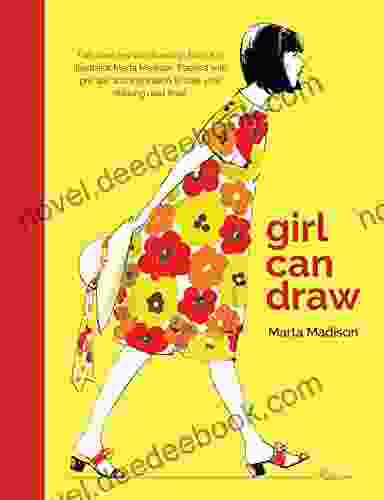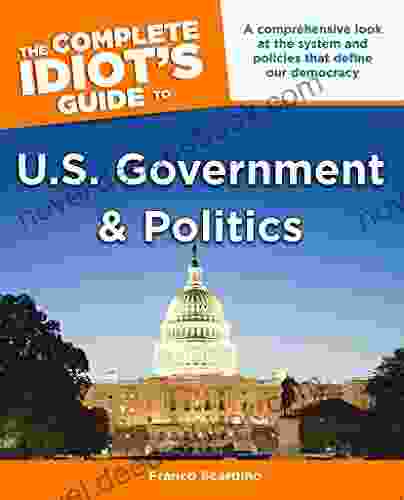A Comprehensive Look at the System and Policies that Define Our Democracy

Democracy is a system of government in which all or many citizens have the power to impact the decisions that affect their lives. It is based on the principles of equality, freedom, and participation. Democracy is often contrasted with authoritarianism, in which power is concentrated in the hands of a few individuals or a single leader.
There are many different types of democracies, each with their own unique characteristics. Some of the most common types include:
4.5 out of 5
| Language | : | English |
| File size | : | 1902 KB |
| Text-to-Speech | : | Enabled |
| Enhanced typesetting | : | Enabled |
| Word Wise | : | Enabled |
| Print length | : | 400 pages |
| Screen Reader | : | Supported |
| X-Ray | : | Enabled |
- Representative democracy: In a representative democracy, citizens elect representatives to make decisions on their behalf. This is the most common type of democracy in the world.
- Direct democracy: In a direct democracy, citizens directly participate in making decisions. This is a less common type of democracy, but it is often used in small communities.
- Constitutional democracy: In a constitutional democracy, the government is limited by a constitution. This helps to protect the rights of citizens and ensure that the government does not become too powerful.
Democracy is not a perfect system, but it is the best system that we have for ensuring that all citizens have a say in the decisions that affect their lives. It is a system that is based on the principles of equality, freedom, and participation, and it is a system that we should all cherish.
The History of Democracy
The concept of democracy can be traced back to ancient Greece. The word "democracy" comes from the Greek words "demos," which means "people," and "kratos," which means "power." The first democracies were established in the Greek city-states of Athens and Sparta in the 6th century BC.
In Athens, democracy was a direct democracy, in which all citizens could participate in the assembly that made decisions for the city. In Sparta, democracy was a limited democracy, in which only a small number of citizens could participate in the assembly. However, both Athens and Sparta were considered to be democracies because they were based on the principle of popular sovereignty.
The idea of democracy spread from Greece to Rome and then to other parts of Europe. In the 18th century, the American Revolution and the French Revolution were both inspired by the ideals of democracy. In the 19th century, democracy began to spread to other parts of the world, including Latin America, Africa, and Asia.
Today, democracy is the most common form of government in the world. Over 120 countries have democratic governments. However, democracy is still a fragile system, and it is important to continue to fight for and defend democratic values.
The Principles of Democracy
Democracy is based on the following principles:
- Equality: All citizens are equal before the law, and they have the same rights and responsibilities.
- Freedom: Citizens are free to express their opinions, to assemble, and to participate in the political process.
- Participation: Citizens have the right to participate in the decisions that affect their lives.
These principles are essential to democracy. Without equality, there can be no true democracy. Without freedom, citizens cannot participate in the political process. And without participation, democracy cannot function.
The Institutions of Democracy
There are a number of institutions that are essential to democracy. These institutions include:
- The legislature: The legislature is the body that makes laws for the country. It is usually elected by the people.
- The executive: The executive is the body that carries out the laws of the country. It is usually headed by a president or prime minister.
- The judiciary: The judiciary is the body that interprets the laws of the country. It is usually composed of judges who are appointed by the legislature or the executive.
These institutions work together to ensure that the government is accountable to the people. The legislature makes the laws, the executive carries out the laws, and the judiciary interprets the laws. This system of checks and balances helps to prevent any one branch of government from becoming too powerful.
The Challenges to Democracy
Democracy is a fragile system, and it faces a number of challenges. These challenges include:
- Authoritarianism: Authoritarianism is a system of government in which power is concentrated in the hands of a few individuals or a single leader. Authoritarianism is often opposed to democracy, and it can lead to the suppression of human rights.
- Corruption: Corruption is the misuse of public power for private gain. Corruption can undermine democracy by eroding public trust in government.
- Inequality: Inequality is the unequal distribution of wealth, income, and power. Inequality can lead to social unrest and make it difficult for democracy to function.
These are just some of the challenges that democracy faces. It is important to be aware of these challenges and to work to overcome them. We must all work together to defend democracy and to ensure that it continues to be the best system of government for all.
Democracy is a system of government that is based on the principles of equality, freedom, and participation. It is a system that has been fought for and defended for centuries, and it is a system that we should all cherish. Democracy is not a perfect system, but it is the best system that we have for ensuring that all citizens have a say in the decisions that affect their lives.
We must all work together to defend democracy and to ensure that it continues to be the best system of government for all.
Additional Resources
- Democracy Now!
- The Democracy Issue
- The End of Democracy?
4.5 out of 5
| Language | : | English |
| File size | : | 1902 KB |
| Text-to-Speech | : | Enabled |
| Enhanced typesetting | : | Enabled |
| Word Wise | : | Enabled |
| Print length | : | 400 pages |
| Screen Reader | : | Supported |
| X-Ray | : | Enabled |
Do you want to contribute by writing guest posts on this blog?
Please contact us and send us a resume of previous articles that you have written.
 Novel
Novel Page
Page Chapter
Chapter Text
Text Genre
Genre Reader
Reader Paperback
Paperback E-book
E-book Magazine
Magazine Newspaper
Newspaper Paragraph
Paragraph Sentence
Sentence Bibliography
Bibliography Synopsis
Synopsis Annotation
Annotation Footnote
Footnote Bestseller
Bestseller Classics
Classics Library card
Library card Reference
Reference Narrator
Narrator Resolution
Resolution Librarian
Librarian Catalog
Catalog Stacks
Stacks Archives
Archives Research
Research Scholarly
Scholarly Reserve
Reserve Academic
Academic Journals
Journals Reading Room
Reading Room Rare Books
Rare Books Interlibrary
Interlibrary Literacy
Literacy Study Group
Study Group Thesis
Thesis Dissertation
Dissertation Storytelling
Storytelling Theory
Theory Mother Bee Designs
Mother Bee Designs Matthew Dobbins
Matthew Dobbins Evan Davis
Evan Davis Earl Nightingale
Earl Nightingale Stephen Mertz
Stephen Mertz Subramanyam Gunda
Subramanyam Gunda Theresa Crater
Theresa Crater Janis Winehouse
Janis Winehouse David Robson
David Robson John Nelson
John Nelson Julianne Wurm
Julianne Wurm Douglas B Relyea
Douglas B Relyea John Mayo
John Mayo Nancy Morse
Nancy Morse Royston Morris
Royston Morris Layli Long Soldier
Layli Long Soldier Steven E Alford
Steven E Alford Lazyprogrammer
Lazyprogrammer Shari Hearn
Shari Hearn John Robb
John Robb
Light bulbAdvertise smarter! Our strategic ad space ensures maximum exposure. Reserve your spot today!
 Frank MitchellFollow ·12k
Frank MitchellFollow ·12k Connor MitchellFollow ·6.8k
Connor MitchellFollow ·6.8k Milton BellFollow ·10.4k
Milton BellFollow ·10.4k Grayson BellFollow ·9.6k
Grayson BellFollow ·9.6k Roland HayesFollow ·17.3k
Roland HayesFollow ·17.3k Neil GaimanFollow ·14.1k
Neil GaimanFollow ·14.1k Marcel ProustFollow ·3.4k
Marcel ProustFollow ·3.4k Herman MitchellFollow ·8.4k
Herman MitchellFollow ·8.4k

 Bryce Foster
Bryce FosterPerforming Asian American Women On Screen And Scene
The representation of Asian American women...

 Frank Mitchell
Frank MitchellGirl Can Draw: A Spirited and Inspiring Play by Joe...
Prologue In the realm of...

 Marc Foster
Marc FosterThe Epic Story of Race and the American Media: A Journey...
From the Shadows of Slavery to the Dawn of...

 Demetrius Carter
Demetrius CarterThe Ultimate Guide to Hiking West Virginia: Discover the...
West Virginia, often referred to as...

 Isaiah Price
Isaiah PriceThe Ten Step Guide on How to Become Famous: Unleash Your...
In the captivating world of entertainment...
4.5 out of 5
| Language | : | English |
| File size | : | 1902 KB |
| Text-to-Speech | : | Enabled |
| Enhanced typesetting | : | Enabled |
| Word Wise | : | Enabled |
| Print length | : | 400 pages |
| Screen Reader | : | Supported |
| X-Ray | : | Enabled |










